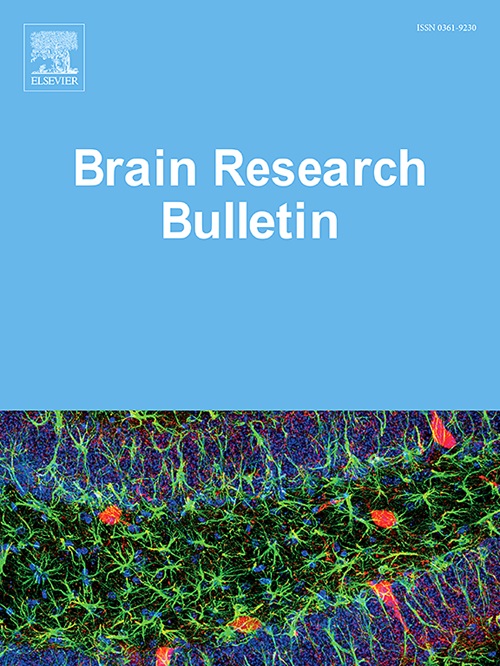Effects of cerebellar repetitive transcranial magnetic stimulation on stroke rehabilitation: A systematic review and meta-analysis
IF 3.5
3区 医学
Q2 NEUROSCIENCES
引用次数: 0
Abstract
Background
Cerebellum has been a emerging target for non-invasive brain stimulation (NIBS) on post-stroke patients in recent years. While research is emerging on the impact of cerebellar repetitive transcranial magnetic stimulation (rTMS) on post-stroke patients, and its integrated effect remain unclear.
Objectives
The objective of this review is to evaluate the efficacy of cerebellar rTMS on stroke rehabilitation.
Methods
We searched PubMed, EMBASE, and Web of Science databases from inception to 31 March 2024 for randomized controlled trials (RCTs) and case studies reporting effects of cerebellar rTMS on patients with stroke.
Results
This review included 18 studies (n = 638 participants), consisting of 14 RCTs and 4 case reports. A total of 6 studies focused on post-stroke dysphagia, while 12 studies investigated post-stroke motor dysfunction. Comparative analysis between treatment and control groups revealed statistically significant improvements in swallowing function, as measured by the Fiberoptic Endoscopic Dysphagia Severity Scale (FEDSS) (P = 0.02), the Penetration Aspiration Scale (PAS) (P < 0.001), and the Standardised Swallowing Assessment (SSA) (P < 0.001). Moreover, cerebellar rTMS treatment showed significant enhancements in balance abilities and activity of daily living among stroke patients, as indicated by significant increases in the Berg Balance Scale (BBS) (P = 0.003) and the Barthel Index (BI) (P = 0.04) compared to the control group.
Conclusions
Existing evidence suggests that cerebellar rTMS holds promise in mitigating post-stroke swallowing dysfunction and motor dysfunction. Stimulation by cerebellar rTMS appears to be an efficacious technique for enhancing stroke rehabilitation.
求助全文
约1分钟内获得全文
求助全文
来源期刊

Brain Research Bulletin
医学-神经科学
CiteScore
6.90
自引率
2.60%
发文量
253
审稿时长
67 days
期刊介绍:
The Brain Research Bulletin (BRB) aims to publish novel work that advances our knowledge of molecular and cellular mechanisms that underlie neural network properties associated with behavior, cognition and other brain functions during neurodevelopment and in the adult. Although clinical research is out of the Journal''s scope, the BRB also aims to publish translation research that provides insight into biological mechanisms and processes associated with neurodegeneration mechanisms, neurological diseases and neuropsychiatric disorders. The Journal is especially interested in research using novel methodologies, such as optogenetics, multielectrode array recordings and life imaging in wild-type and genetically-modified animal models, with the goal to advance our understanding of how neurons, glia and networks function in vivo.
 求助内容:
求助内容: 应助结果提醒方式:
应助结果提醒方式:


